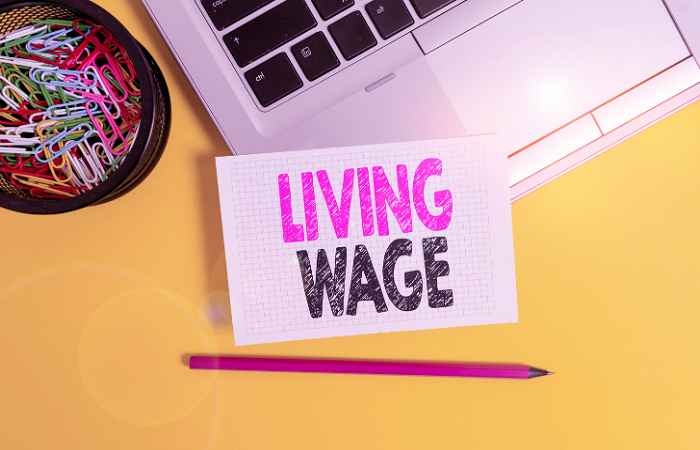The rates in Minimum Wage London often reflect the higher living costs associated with the city compared to other regions in the UK. The minimum wage refers to the legally mandated lowest amount of compensation that employers are required to pay their employees for their labor. It sets a baseline standard to ensure that workers receive fair remuneration for their work, irrespective of the industry or sector they are employed in.
Minimum wage policies play a crucial role in safeguarding the economic well-being of workers, particularly those in low-wage sectors. These policies aim to address income inequality, ensure decent living standards, and promote social justice by preventing exploitative wage practices. By setting a floor for wages, minimum wage policies contribute to reducing poverty, enhancing workers’ purchasing power, and stimulating economic growth through increased consumer spending.
London, as a major economic hub with its unique cost of living and economic dynamics, has specific minimum wage considerations. The National Living Wage (NLW) and National Minimum Wage (NMW) rates applicable in London are crucial factors impacting the livelihoods of workers, the competitiveness of businesses, and the overall economic landscape of the city. Understanding London’s minimum wage specifics is essential for comprehensively analyzing the economic and social dynamics within the city and ensuring equitable remuneration for its workforce.
What Is The Minimum Wage In London?
There’s no separate minimum wage for London. The National Minimum Wage (NMW) applies throughout the UK, with the National Living Wage (NLW) being the highest tier for workers aged 23 and over. Here’s a quick summary of the current minimum wage rates in the UK. These rates are updated annually on 1 April.
| Age Group |
April 2024 Minimum Wage
|
| 21 and over | £11.44 |
| 18 to 20 | £8.60 |
| Under 18 | £6.40 |
| Apprentice | £6.40 |
Previous Minimum Wages Rates
The rates listed below were applicable to the National Living Wages and the National Minimum Wages starting from April 2017.
Rates from 1 April 2021 Before 1 April 2024, the National Living Wages applied to those aged 23 and over.
| Age Group | April 2023 to March 2024 | April 2022 to March 2023 |
April 2021 to March 2022
|
| 23 and over | £10.42 | £9.50 | £8.91 |
| 21 to 22 | £10.18 | £9.18 | £8.36 |
| 18 to 20 | £7.49 | £6.83 | £6.56 |
| Under 18 | £5.28 | £4.81 | £4.62 |
| Apprentice | £5.28 | £4.81 | £4.30 |
Rates before 1 April 2021 Before 1 April 2021, the National Living Wages applied to those aged 25 and over.
| Age Group | April 2020 to March 2021 | April 2019 to March 2020 |
April 2018 to March 2019
|
| 25 and over | £8.72 | £8.21 | £7.83 |
| 21 to 24 | £8.20 | £7.70 | £7.38 |
| 18 to 20 | £6.45 | £6.15 | £5.90 |
| Under 18 | £4.55 | £4.35 | £4.20 |
| Apprentice | £4.15 | £3.90 | £3.70 |
Please note that the rates mentioned are in effect for the specified time periods, and the age groups and rates may have changed since then.
Minimum Wage London Yearly
There isn’t a separate minimum wage specific to London; instead, the National Living Wage (NLW), which is the highest level within the National Minimum Wage (NMW) system, is applicable across the entire UK.
As of April 1, 2024, the minimum wage is typically calculated on an hourly basis. To estimate the yearly minimum wage, assuming a standard 40-hour work week, you can follow this calculation:
Hourly minimum wage: £11.44
| Calculation | Amount |
| Weekly wage (40 hours/week) |
£11.44 per hour * 40 hours/week = £457.6
|
| Yearly estimate (52 weeks) |
£457.6 per week * 52 weeks/year = £23,990.4
|
It’s important to note:
- This calculation provides an estimate and does not include taxes, deductions, or overtime pay.
- Full-time workers may earn more based on their actual hours worked.
- For a precise yearly income estimate, the specific number of hours worked each week would need to be considered.
London Minimum Wage Per Hour

Hi there! I’m Loanna Morrison, a dedicated Civil Servant serving the public interest within the UK government. With a passion for ensuring fair labor practices and equitable treatment in the workforce, I’m deeply committed to advocating for policies that promote the well-being of workers across the United Kingdom.
As the mind behind MinimumWageUK.co.uk, I strive to provide valuable resources and up-to-date information regarding minimum wage regulations in the UK. With a focus on transparency and accessibility, my goal is to empower both employees and employers with the knowledge they need to navigate the complexities of minimum wage laws effectively.
With years of experience in public service and a keen understanding of labor policies, I’m here to support individuals and businesses alike in achieving compliance and fostering a workplace environment that values and respects the contributions of every worker.
Join me in the pursuit of a fairer, more equitable labor landscape for all. Together, we can make a meaningful difference in the lives of workers across the UK.

